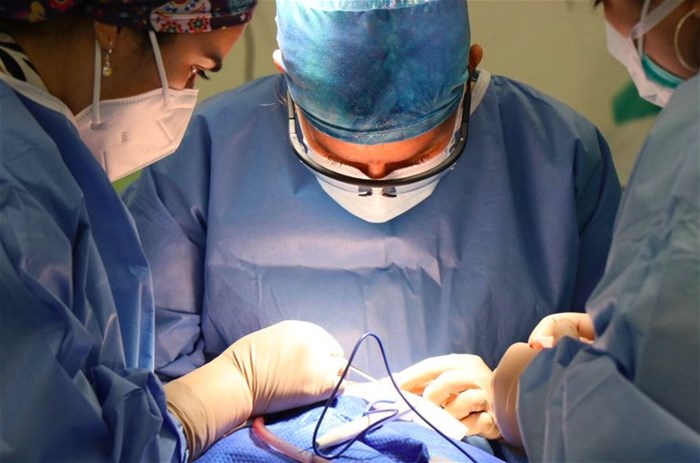#BreastCancerAwareness #MentalHealthAwarenessMonth
As part of the treatment plan, sometimes surgery is required which depends on the type of breast cancer, size of tumour(s) and stage of the disease. This could include breast conserving surgery (lumpectomy), or surgery to remove the whole breast, known as a mastectomy, or to investigate if the cancer has spread to the lymph nodes under the arm.2
Gretchen Minnaar, Cansa services manager: Psychosocial Support, says: “Coping with the loss of part of a breast, or entire breast and sometimes both, due to cancer, is a deeply personal and challenging experience. Along with the physical side effects post-surgery, for example wound care, drain management, pain management and in certain cases, lymphoedema and loss of mobility, patients may experience psychological distress. They may develop a negative self-image or struggle to come to terms with the loss. Patients who are required to have chemotherapy, radiation, hormone or targeted therapy before or after surgery, also battle with side effects related to these treatments, in addition to those caused by surgery. This is why it is important to provide tips to practically and psychologically support these patients.”
Practical support and psychological support
“Women should pack essential items before going to hospital and be properly prepared for what will happen during surgery. It’s important that they discuss this with their medical team. There are also arrangements they can make to prepare their home environment to complement recovery at home post-surgery. After surgery, it’s helpful if women know how to address the most common side effects of surgery,” adds Vlooi Venter, Cansa national trainer and clinical nursing specialist.
Cansa provides free clinical advice to patients regarding coping with side effects of treatment and pain management, affordable breast prostheses options, lymphoedema garments, wigs and headwear, all available via its Care Centres. Patients living far from treatment centres can stay at Care Homes while undergoing treatment.
Patients can further benefit from counselling or connecting with other breast cancer survivors. The Cansa Tele Counselling service is free with counselling offered seven languages and there are many support groups (face to face, WhatsApp, and Facebook). Patients with metastatic breast cancer can sign up to iSurvivor MBC for supportive emails.
Linah Makoena, breast cancer survivor shares how she felt after the removal of her breast: “The surgery really affected my confidence. I used to wear tops with ‘see-through’ bits, but now I wear big tops so I can hide my appearance. I am always aware of the ‘fake’ breast and worried that it moved. When I look in the mirror, I can’t believe I only have one breast now. I have a huge scar that won’t go away. I try to take it a day at a time…”
Yumna Booran, life coach and breast cancer survivor who underwent a mastectomy shares: “Journalling helps me to heal. I wrote ‘Her scars tell a story, she’s cancer free; her body though changed is more than enough, a symbol of courage, resilience and tough. Perfect in ways she never knew, her beautiful self, her journey anew’. Drawing and doodling also help me unwind.”
Cansa urges women to prioritise breast self-examinations and screenings for breast cancer. Early detection significantly enhances the effectiveness of treatment and increases the chances of recovery, especially for those with a family history of cancer. Cansa provides affordable clinical breast examinations at its Care Centres to identify any lumps or irregularities. Patients with medical aid can claim the cost from their medical aids after payment. Additionally, government health clinics offer free clinical breast examinations.
Women can access mammograms at public hospital breast clinics with a referral letter from a medical professional or a Cansa nurse. Alternatively, contact the Radiological Society of SA (RSSA) at www.rssa.co.za to arrange a mammogram. Women over 40 are advised to undergo annual screenings.
In October, Cansa hosts events to raise funds for its Women’s Health awareness campaign, ensuring screenings and services remain affordable. Support by purchasing a ‘Doek with a Difference,’ earrings, or participating in the Pink Trees for Pauline campaign at local Cansa Care Centres. Host or attend a Cuppa For Cansa event or Cansa High Teas. For more information, az.gro.asnac@ofni or donate on Cansa’s secure online platforms.
References
1. https://www.cansa.org.za/files/2024/09/CANSA-Fact-Sheet-on-Breast-Cancer-in-Women-NCR-2022-September-2024.pdf
2. https://my.clevelandclinic.org/health/treatments/8338-breast-cancer-surgery































